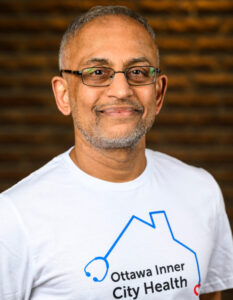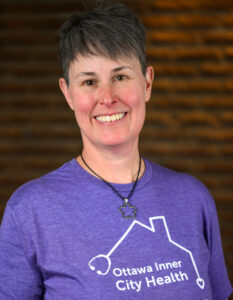Purchase Priligy Without Prescription Visit Our Pharmacy ↓

Positive Effects on Self-esteem
The study also showed that Priligy improves overall sexual satisfaction and quality of life. This compliance is crucial in maintaining the delicate equilibrium between managing symptoms effectively and ensuring overall health safety. Priligy, with its active ingredient dapoxetine, is designed to be taken on an as-needed basis, typically 1 to 3 hours before anticipated sexual activity. Surprising Emotional Side Effects: the Impact on Mental Health. Users have experienced mood alterations such as anxiety, agitation, and even feelings of depression. As couples explore this new avenue, they may encounter a range of emotions – from apprehension to newfound intimacy. It is recommended that patients speak with their healthcare provider before starting Priligy to ensure that it is safe for their individual needs and to discuss any potential side effects.
Boosted Confidence and Self-esteem
Priligy works by affecting the neurotransmitters in the brain that play a role in ejaculation. However, when Alex discovered Priligy and decided to give it a try, their relationship transformed. Clinical studies have demonstrated that dapoxetine significantly improves the time to ejaculation, with many men experiencing a doubling or tripling of their intravaginal ejaculatory latency time (IELT). One essential practice is moderating alcohol intake, as Priligy can intensify alcohol's effects, particularly drowsiness and impaired judgment. It increases the time it takes to ejaculate, thereby improving sexual performance and satisfaction. But how effective is Priligy, and how does it work? This section aims to provide an in-depth analysis of Priligy's effectiveness in delaying ejaculation and its underlying mechanisms. While taking Priligy, patients might encounter certain side effects, but with proper management, these can be minimized.
Improved Quality of Life
However, it is indispensible to note that Priligy is not a cure for premature ejaculation, but rather a method to manage its symptoms. Some accounts touch on minimal improvement or dissatisfaction with the results when weighed against expectations or the cost of treatment. Priligy has also been shown to enhance the emotional bond between partners. It’s these personal tales that underline the profound impact Priligy can have, bridging the gap between hope and reality for many. Additionally, Priligy has been found to be well-tolerated by patients, with only mild side effects reported. Through educated and responsible use, Priligy can significantly improve the quality of life for those affected by premature ejaculation. By effectively treating premature ejaculation, Priligy can help couples to reconnect and enhance their intimacy.
The Benefits of Using Priligy for Intimacy
Each alternative brings varied approaches, making it crucial to evaluate the ingredients based on individual health needs and preferences. This fast-acting nature mitigates some of the common concerns associated with long-term SSRI use, such as the potential for sustained side effects or withdrawal symptoms upon discontinuation. Additionally, some people may be at higher risk for side effects, such as those with certain medical conditions or taking certain medications. Premature ejaculation (PE) often lurks in the shadows of private distress, with many individuals reluctant to address the issue due to embarrassment or societal pressures. By delving into the chemical composition of Priligy and uncovering its potentially harmful ingredients, individuals can better assess the risks and make informed choices regarding its use. This revolutionary treatment has brought hope to countless individuals struggling with premature ejaculation. This can appear alarming and requires immediate medical attention.
Common Side Effects: What to Expect
By increasing control over ejaculation, Priligy helps to extend the duration of sexual activity, allowing couples to experience a more fulfilling and satisfying intimate connection. At first, I was hesitant to try yet another unproven remedy, but my friend was insistent. The benefits of Priligy include an increase in sexual satisfaction, an improvement in self-esteem, and an increase in the quality of life. Priligy, also known by its generic name dapoxetine, works as a selective serotonin reuptake inhibitor (SSRI). In fact, managing premature ejaculation can lead to improved mental health and higher levels of confidence. Clinical trials have consistently demonstrated that Priligy significantly prolongs the time to ejaculation, leading to increased sexual satisfaction and improved quality of life for both men and their partners.Furthermore, Priligy has shown to be well-tolerated, with few reported side effects. Priligy aids in reducing performance anxiety by providing individuals with the reassurance that they can maintain control and perform without the fear of premature ejaculation.
Side Effects Showdown: Priligy Versus Alternatives
Its effectiveness has been hailed by both medical professionals and real-life users, cementing its reputation as a true game-changer in the field of sexual health. By taking Priligy, individuals can experience a significant increase in their ability to delay ejaculation, leading to a more satisfying sexual experience for both partners. Overall, understanding the potential side effects of Priligy is vital for an informed decision about its usage. Priligy is recommended for men aged 18-64 with premature ejaculation. Overall, treating premature ejaculation can have significant benefits that extend beyond just improved sexual function. Although not life-threatening, Premature Ejaculation can affect a man's self-esteem, confidence, and intimacy with their partner. Priligy empowers men to take control of their sexual wellness and enjoy the benefits of enhanced sexual satisfaction.
Addressing Concerns: Safety and Side Effects
Regular follow-ups allow for adjustments to the therapeutic combination, maximizing the potential for improved sexual health and satisfaction. Priligy's ability to reduce anxiety goes beyond enhancing sexual experiences. Premature ejaculation is a medical condition that affects many men worldwide and can cause considerable distress. Designed to be generally well-tolerated, it minimizes the typical "hangover" most side effects bring. Sleep, on the other hand, not only aids in recovery but also helps regulate mood and cognitive function, which can be affected by the medication. These accounts not only provide valuable insights into the real-world application of this medication but also instill hope in others seeking a solution for premature ejaculation. What Sets It ApartPriligy, a revolutionary treatment for premature ejaculation (PE), stands out among other solutions due to its unique mechanism of action and proven effectiveness.
Diving Deep into Personal Testimonies: the Success Stories
Their experiences serve as a reminder that overcoming premature ejaculation is possible and that no one should suffer in silence. However, it is important to delve further beyond the surface and understand the Priligy phenomenon, particularly in terms of its hidden side effects. Combining Priligy with other treatments can significantly enhance its effectiveness, paving the way for better results in managing premature ejaculation. This makes it an ideal solution for men who have tried other remedies and still struggle with PE. Priligy, widely known for its ability to treat premature ejaculation, has been reported to have potential side effects related to mood. Priligy is recommended as an on-demand treatment, unlike Viagra which is taken daily. This pharmacological approach is part of a broader wave of targeted treatments, reflecting an understanding of the complex interplay between psychological factors and neurochemical processes in sexual function.
Success Stories and Testimonials
The positive ripples of Priligy's impact extend beyond the bedroom, as couples report enhanced communication, increased emotional intimacy, and a strengthened sense of mutual understanding and satisfaction. As Priligy is not intended for continuous daily use, it should only be taken when sexual activity is anticipated. Priligy belongs to a class of medications known as selective serotonin reuptake inhibitors (SSRIs). By doing so, Priligy helps to delay ejaculation and improve overall sexual performance. It works by increasing the levels of serotonin in the brain, which helps to delay ejaculation. It received FDA approval in 2012, and since then, it has helped millions of men worldwide overcome their sexual issues and improve their quality of life. Priligy is a prescription medication that has been shown to be effective in delaying ejaculation in men with premature ejaculation.
Priligy: Empowering Men to Reclaim Their Sexual Fulfillment
Many individuals have reported positive experiences with using Priligy, sharing their success stories and testimonials. It falls under the category of selective serotonin reuptake inhibitors (SSRIs), but unlike other SSRIs that are commonly used as antidepressants, Priligy is intended for on-demand use, taken only when needed, rather than every day. These stories serve as a reminder that overcoming this common sexual challenge is possible, and that a fulfilling and satisfying sex life is within reach. By improving the sexual experience of both partners, Priligy can lead to stronger feelings of intimacy and closeness, even outside of the bedroom. Don't let premature ejaculation hold you back any longer--join the ranks of men who have found success with Priligy. This newfound sense of vulnerability has, in turn, strengthened the emotional bond and fostered a deeper understanding between partners. To his amazement, Priligy not only helped him last longer but also boosted his confidence and improved his overall sexual satisfaction.These success stories highlight the real-life impact of Priligy in transforming the lives of men with PE, providing hope and a renewed sense of control in the bedroom.







